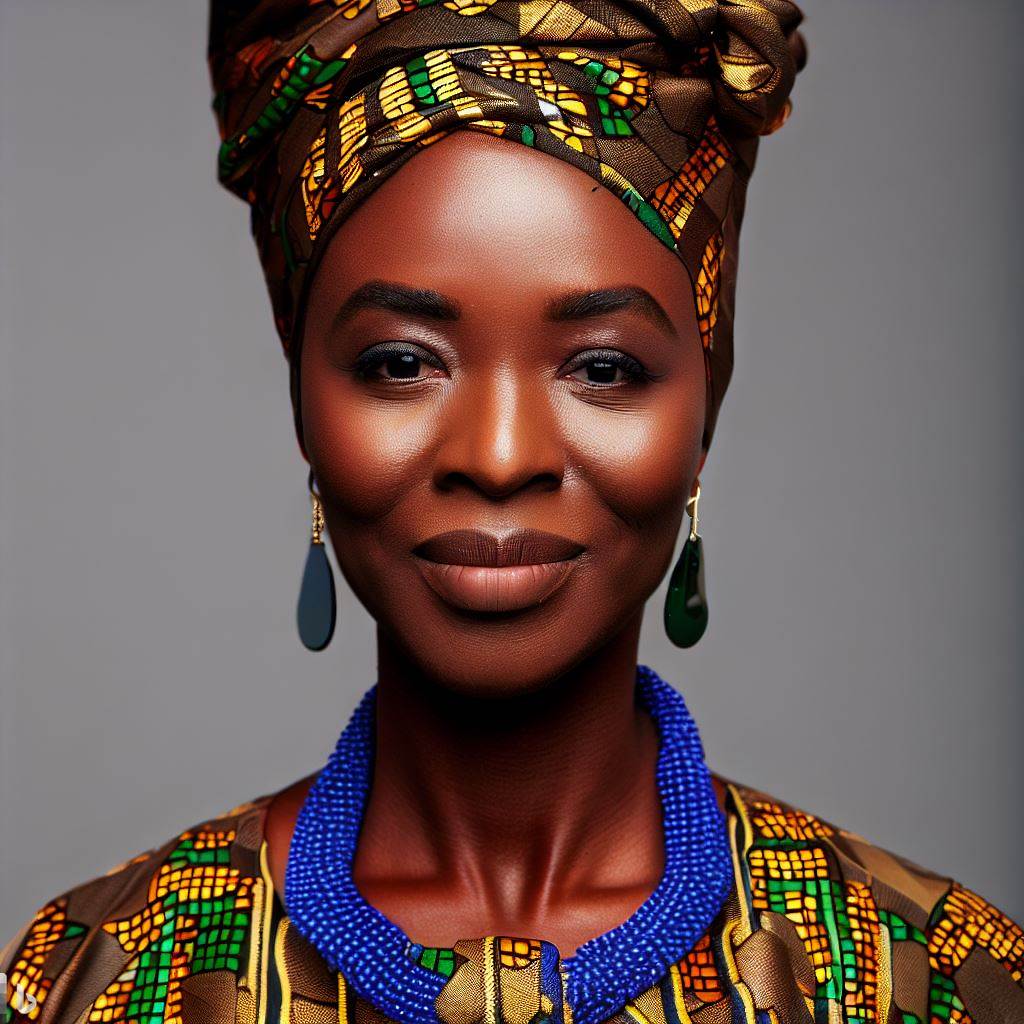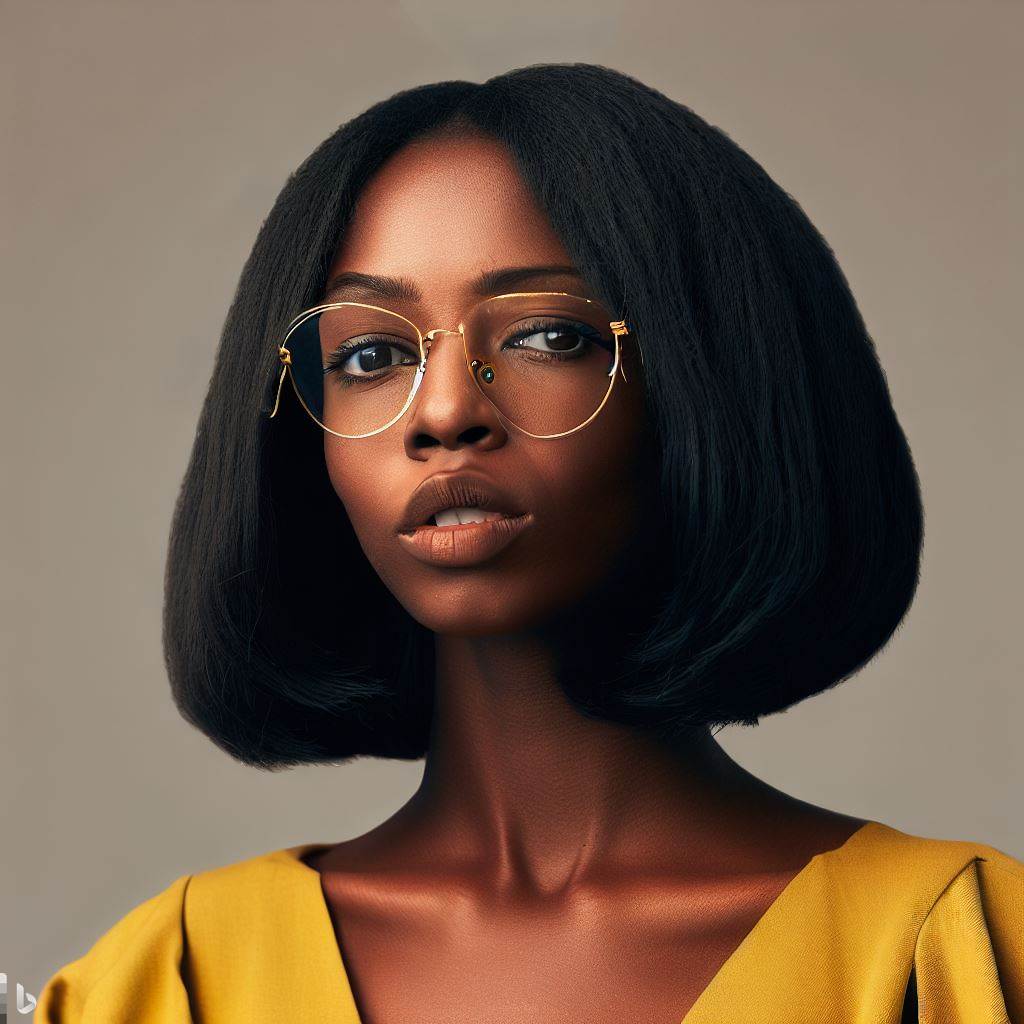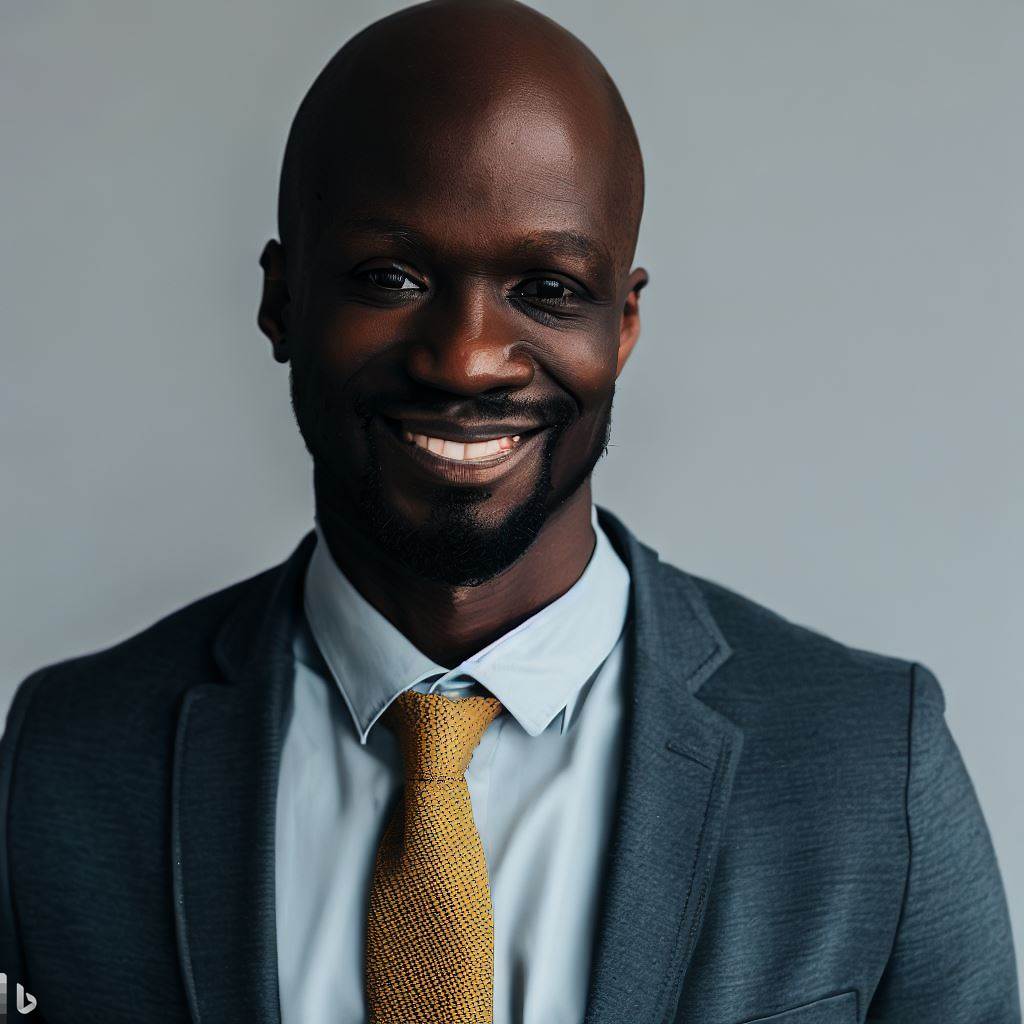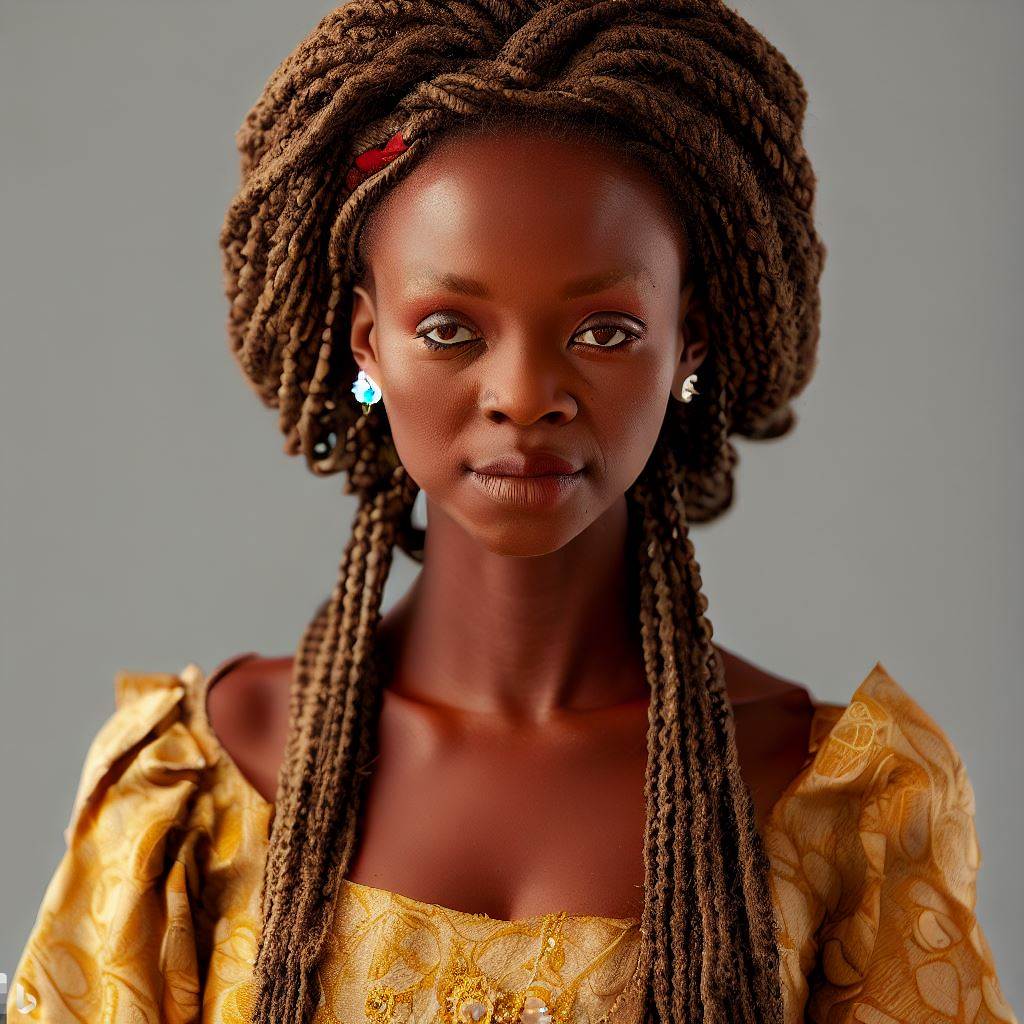Introduction
A costume designer plays a crucial role in the Nigerian entertainment industry by creating and bringing characters to life through their clothing.
This is achieved by combining creativity, research, and technical skills to design costumes that reflect the personality, era, and cultural context of the characters they are working with.
A costume designer is responsible for selecting, creating, and overseeing the production of costumes worn by actors in a film, TV show, or stage production.
They collaborate closely with the director, production designer, and other members of the creative team to ensure that the costumes align with the overall vision and narrative of the project.
The importance of a costume designer in the Nigerian entertainment industry cannot be overstated.
Their work is instrumental in transporting audiences into different worlds and time periods, enhancing the storytelling experience.
Through their costumes, a costume designer helps to establish the visual identity of characters, adding depth and authenticity to their portrayal.
Thesis statement: Discovering the essential skillsets required to become a successful costume designer in Nigeria is crucial for aspiring professionals in the industry.
Understanding the Nigerian Entertainment Industry
A. Overview of the Nigerian entertainment industry
- The Nigerian entertainment industry is a vibrant and thriving sector.
- It encompasses various forms of entertainment, including music, film, television, and theater.
- Nollywood, the Nigerian film industry, is the third-largest film industry in the world.
- The industry is known for its unique storytelling, vibrant cultural representation, and diverse talent.
B. Rapid growth and opportunities for costume designers
- The Nigerian entertainment industry has experienced rapid growth in recent years.
- This growth has created numerous opportunities for costume designers to showcase their skills.
- There is a high demand for costume designers in Nollywood, as well as in music videos, commercials, and fashion shows.
- Costume designers play a crucial role in bringing characters and stories to life through their designs.
- The industry offers a platform for costume designers to showcase their creativity and talent.
C. Importance of cultural diversity and representation in costumes
- Nigeria is a culturally diverse country with over 250 ethnic groups.
- It is essential for costume designers to understand and respect the cultural diversity of Nigeria.
- Costume designers must ensure accurate and authentic representation of different cultures in their designs.
- Costumes play a significant role in telling stories and reflecting the cultural heritage of characters.
- By incorporating cultural elements, costume designers contribute to the preservation and promotion of Nigerian culture.
Basically, the Nigerian entertainment industry offers immense opportunities for costume designers.
With its rapid growth, diverse talent pool, and vibrant storytelling, costume designers have a platform to showcase their skills and creativity.
However, it is crucial for costume designers to embrace cultural diversity and accurately represent different cultures in their designs. By doing so, they contribute to the preservation and promotion of Nigerian culture.
Read: Challenges Faced by Costume Designers in Nigeria Today
Creativity and Artistic Skills
A. Ability to conceptualize and create unique costume designs
To be a successful costume designer in Nigeria, one must possess the ability to conceptualize and create unique costume designs.
This skill is crucial in order to stand out in the industry and create costumes that are visually captivating and original.
B. Understanding color theory and its impact on costumes
Another important skill for a costume designer in Nigeria is the understanding of color theory and its impact on costumes.
This skill allows the designer to effectively choose colors that enhance the overall aesthetic of the costume while also conveying the desired mood or message.
C. Attention to detail in costume construction and selection of materials
Attention to detail is paramount when it comes to costume construction and the selection of materials.
A successful costume designer in Nigeria must have a keen eye for detail, ensuring that every stitch, seam, and fabric choice is meticulously thought out and executed.
Here are some additional skills that are important for a successful costume designer in Nigeria:
1. Knowledge of Nigerian cultural and historical references
Having knowledge of Nigerian cultural and historical references is essential for a costume designer.
This allows them to incorporate elements of Nigerian culture and history into their designs, making them more authentic and relatable to the audience.
2. Ability to work within a budget
Being able to work within a budget is a practical skill that costume designers in Nigeria must possess.
This involves finding creative solutions and alternatives when faced with financial limitations, without compromising the overall quality and vision of the costumes.
3. Strong communication and collaboration skills
Collaboration is a key aspect of costume design, and strong communication skills are crucial in effectively working with directors, actors, and other members of the production team.
A costume designer in Nigeria must be able to effectively communicate their ideas and visions while also being open to feedback and collaboration.
4. Knowledge of fashion trends and industry developments
Keeping up with fashion trends and industry developments is important for a successful costume designer in Nigeria.
This allows them to stay current and relevant, incorporating new techniques and styles into their designs, and ensuring that their work reflects the changing tastes and preferences of the audience.
5. Ability to adapt and problem-solve
The ability to adapt and problem-solve is vital for a costume designer in Nigeria.
Productions often come with unexpected challenges and changes, and a successful costume designer must be able to think on their feet and find solutions that maintain the integrity of the costumes while also accommodating the needs of the production.
Therefore, creativity and artistic skills are essential for a successful costume designer in Nigeria.
The ability to conceptualize unique designs, understand color theory, pay attention to detail, and possess additional skills such as knowledge of Nigerian culture, working within a budget, strong communication and collaboration skills, knowledge of fashion trends, and problem-solving abilities are all crucial for thriving in the industry.
By honing these skills, costume designers in Nigeria can create visually stunning and culturally rich costumes that captivate audiences and contribute to the overall success of productions.
Read: Modern Trends in Interior Designing: Nigeria’s Perspective
Research and Analysis
A. Familiarity with Nigerian history, culture, and traditions
One of the essential skillsets for a successful costume designer in Nigeria is a deep understanding of Nigerian history, culture, and traditions.
To create costumes that accurately reflect the time period and cultural context, the designer must be familiar with Nigeria’s rich and diverse heritage.
They should study the various tribes, their traditional clothing styles, and the social significance behind specific garments.
By having a comprehensive knowledge of Nigerian history and culture, the designer can ensure authenticity and pay homage to the country’s traditions.
B. Conducting thorough research for accurate period costumes
Another crucial skill for a successful costume designer in Nigeria is the ability to conduct thorough research.
When creating period costumes, it is essential to accurately represent the fashion trends and garments of that specific era.
The designer should look at historical documents, photographs, paintings, and other sources to gain insights into the clothing styles prevalent during that time.
By studying fashion history and researching the specific period, the costume designer can create costumes that are faithful to the time and maintain historical accuracy.
C. Ability to analyze character traits and translate them into costumes
Costumes play a significant role in character development, and a skilled costume designer can effectively analyze character traits and translate them into costumes.
They should understand the psychology of the characters and the message their clothing conveys.
For example, if a character is rebellious and edgy, the costume designer can reflect this through their choice of clothing, colors, and accessories.
The designer must consider the character’s background, occupation, and circumstances to accurately depict their personality through costumes.
By understanding the nuances of character development and using costumes as a storytelling tool, the designer can enhance the overall narrative.
Research and analysis are vital components of a successful costume designer’s skillset in Nigeria.
By being familiar with Nigerian history, culture, and traditions, the designer can create costumes that authentically represent the country’s heritage.
Thorough research allows the designer to accurately depict period costumes, ensuring historical accuracy.
Additionally, the ability to analyze character traits and translate them into costumes adds depth to the storytelling process.
Combining these essential skills with creativity and craftsmanship enables a costume designer to excel in Nigeria’s vibrant entertainment industry.
Stay tuned for the next section, where we will explore the technical skills required for a successful costume designer in Nigeria.
Read: Tips for Aspiring Photographers: Building a Portfolio in Nigeria
Collaboration and Communication
Collaboration and communication are vital skills for a successful costume designer in Nigeria.
Building strong relationships with directors, producers, and actors is crucial.
Effective communication plays a significant role in understanding and fulfilling costume requirements.
Costume designers must listen attentively and ask clarifying questions to ensure their work aligns with the directors’ vision.
Collaborating with other departments is essential to create a cohesive storytelling experience.
Costume designers must work closely with set designers, makeup artists, and lighting technicians to ensure all elements harmonize.
A. Building relationships with directors, producers, and actors
- Costume designers need to establish trust and rapport with directors to understand their vision.
- Developing a good working relationship with producers helps in securing necessary resources and support.
- Efficient communication with actors is necessary to understand their characters’ personalities and costume needs.
- Attending rehearsals and meetings allows costume designers to establish strong working relationships with the entire creative team.
B. Effective communication to understand and fulfill costume requirements
- Active listening is crucial when directors explain their vision for the characters’ costumes.
- Asking relevant questions helps costume designers gain clarity on the desired look and feel.
- Translating the director’s vision into costume sketches or mood boards ensures a shared understanding.
- Regular communication throughout the design process helps address any concerns or changes promptly.
C. Collaborating with other departments to ensure cohesive storytelling
- Coordinating with set designers helps create a unified aesthetic by considering color palettes and overall design.
- Working with makeup artists ensures that costumes and makeup enhance each other.
- Collaborating with lighting technicians ensures costumes are appropriately showcased on stage or screen.
- Regular meetings with other departments help identify any potential conflicts and find solutions.
Most importantly, collaboration and communication are essential for a successful costume designer in Nigeria.
Building strong relationships with directors, producers, and actors is crucial, enabling accurate interpretation of their vision.
Effective communication aids in understanding and fulfilling costume requirements.
Collaborating with other departments ensures cohesive storytelling, resulting in a visually appealing and harmonious production.
Costume designers who master these skills are well-equipped to excel in their profession and contribute to the success of Nigerian theater and film industry.
Read: A Guide to Event Photography in Nigeria’s Bustling Cities
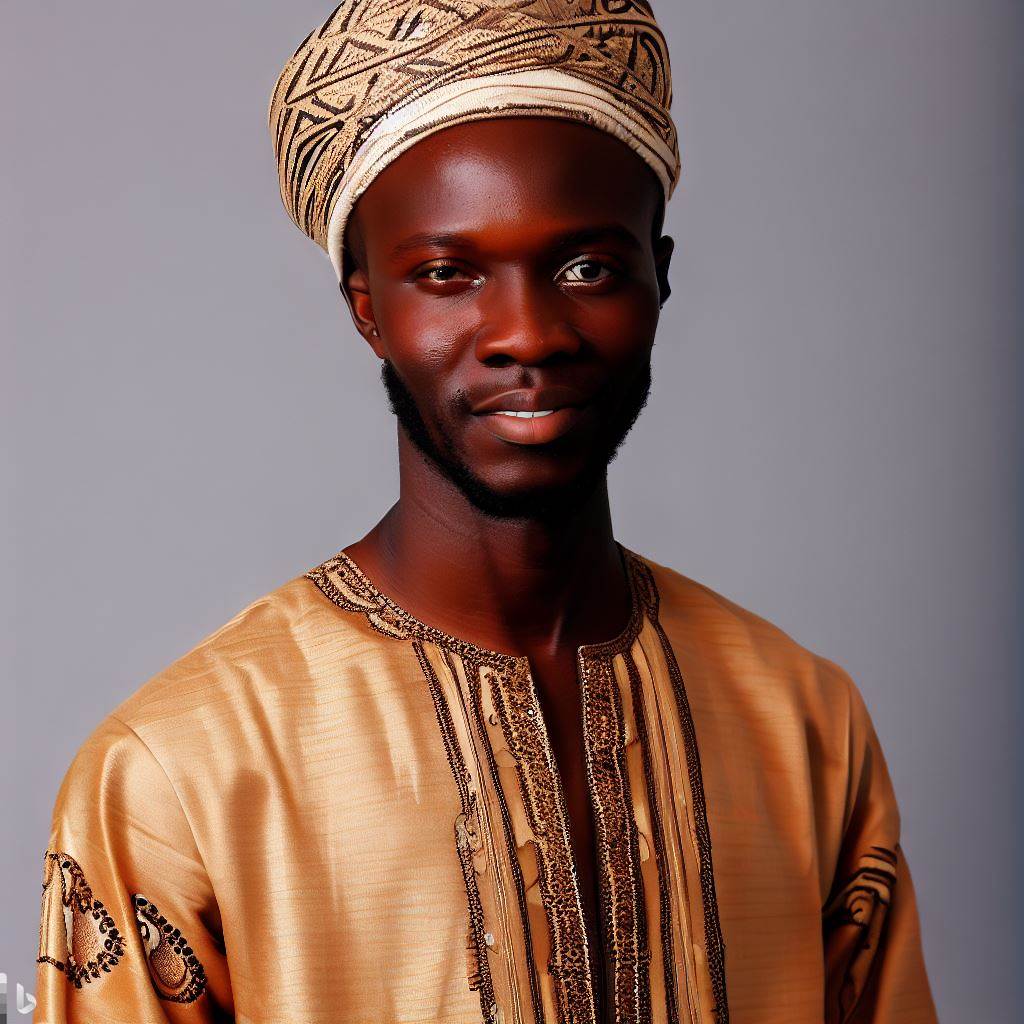
Adaptability and Problem-Solving
In order to be a successful costume designer in Nigeria, it is essential to possess certain skillsets.
Among these, adaptability and problem-solving ability play crucial roles in the industry.
A. Ability to work under pressure and meet tight deadlines
Working in the costume designing field often involves working under pressure and meeting tight deadlines.
Costume designers need to be efficient in managing their time and be able to deliver high-quality work even when faced with time constraints.
When working on a production, there are various factors that can contribute to tight deadlines.
Costume designers need to be able to handle the stress and still create costumes that meet the production requirements.
B. Flexibility to handle unexpected changes or last-minute adjustments
Costume designing requires flexibility to handle unexpected changes or last-minute adjustments.
Productions can encounter numerous changes during the creative process, and costume designers must adapt and make necessary modifications accordingly.
They need to be quick on their feet and able to think on their toes when confronted with unforeseen changes.
This ability to adapt and adjust costumes according to the production’s needs is highly valued in the industry.
C. Creative problem-solving skills to overcome budget constraints
Costume designers often face budget constraints when working on productions. They need to be creative problem solvers to ensure that costumes are designed within the given budget limitations.
By utilizing their artistic skills and knowledge of materials, costume designers can find cost-effective solutions to create visually appealing costumes.
This requires being resourceful and thinking outside the box to achieve the desired results while staying within budget constraints.
In essence, adaptability and problem-solving skills are essential for a successful costume designer in Nigeria.
The ability to work under pressure and meet tight deadlines, handle unexpected changes, and overcome budget constraints are crucial in the fast-paced and ever-changing world of costume designing.
Organization and Time Management
A. Keeping track of costume inventory and budget
- Inventory management is crucial for a successful costume designer in Nigeria. Keeping track of costumes, accessories, and materials is essential.
- Maintaining accurate inventory records ensures that designers know what they have on hand and avoid unnecessary purchases.
- It is important for costume designers to have a detailed inventory list that includes the description, condition, and location of each item.
- Additionally, a budget should be created and updated regularly to track expenses and ensure that costs are not exceeding the allotted amount.
- By carefully managing costume inventory and budget, designers can maximize resources and minimize wastage.
B. Effective time management to meet costume production timelines
- Time management plays a vital role in the success of a costume designer in Nigeria. Meeting production timelines is crucial for the overall workflow.
- Designers must be able to estimate the time required to create, alter, or source costumes accurately.
- Breaking down the costume production process into manageable steps and setting deadlines for each stage is essential.
- Regularly reviewing and revising the production schedule ensures that designers stay on track and deliver costumes on time.
- Effective time management helps designers handle unexpected delays or changes without compromising the quality or delivery of costumes.
C. Maintaining organized records and files
- Costume designers in Nigeria need to maintain organized records and files to ensure efficient workflow and easy access to information.
- Creating a system to keep track of design ideas, sketchbooks, fabric samples, and reference materials helps designers stay organized.
- Digital tools such as cloud storage or project management software can assist in keeping files accessible and organized.
- Organizing records of measurements, fittings, and alterations is crucial for seamless communication and collaboration with the production team.
- Regularly reviewing and purging old or outdated files helps to keep the system streamlined and avoid clutter.
In a nutshell, organization and time management are key skills for a successful costume designer in Nigeria.
Keeping track of costume inventory, managing the budget, effectively managing time, and maintaining organized records and files are all essential for a smooth workflow and meeting production timelines.
By honing these skills, costume designers can excel in their profession and deliver outstanding costumes for various projects in Nigeria’s vibrant entertainment industry.
Cultural Sensitivity and Inclusivity
A. Respecting cultural sensitivities and avoiding stereotypes
- Costume designers in Nigeria must prioritize respecting cultural sensitivities in their designs.
- They should avoid using stereotypes that perpetuate negative or inaccurate portrayals of different cultures.
- Researching and understanding the cultural significance of certain clothing styles is crucial.
- Sensitivity towards religious beliefs, traditional practices, and historical contexts is essential.
- By avoiding stereotypes and respecting cultural sensitivities, costume designers can create more authentic and respectful designs.
B. Promoting diversity and inclusivity through costume design
- Costume designers in Nigeria have the opportunity to promote diversity and inclusivity through their work.
- They can create costumes that represent the various ethnic groups, tribes, and regions in Nigeria.
- Incorporating traditional clothing styles from different cultures can celebrate their unique heritage.
- Designers can also explore contemporary fashion trends that reflect Nigeria’s multicultural society.
- By promoting diversity and inclusivity, costume designers contribute to a more inclusive representation of Nigerian culture.
C. Collaborating with diverse teams to ensure authentic representation
- Collaboration with diverse teams is crucial for costume designers to ensure authentic representation.
- They should work closely with directors, producers, and actors to understand the character’s background and cultural identity.
- Consulting with cultural experts, historians, or consultants can provide valuable insights for accurate costume design.
- Engaging local artisans or craftsmen can help incorporate traditional techniques and materials.
- Feedback and inputs from members of the specific cultural groups being represented are essential for authenticity.
In review, cultural sensitivity and inclusivity are vital for a successful costume designer in Nigeria.
By respecting cultural sensitivities, avoiding stereotypes, and promoting diversity, costume designers can create authentic and respectful designs.
Collaborating with diverse teams ensures accurate representation, incorporating traditional and contemporary elements.
Ultimately, costume designers have the opportunity to celebrate and showcase the rich cultural heritage of Nigeria through their designs.
Publish Your Professional Profile, Business or Brand
Showcase your expertise, gain trust, and boost visibility instantly on Professions.ng.
Publish NowFind Out More: Becoming an Illustrator in Nigeria: A Beginner’s Guide
Find Out More: An Introduction to Costume Designing in Nigeria’s Film Industry
Continuous Learning and Professional Development
A successful costume designer in Nigeria understands the importance of continuous learning and professional development.
They constantly strive to stay updated with the latest fashion trends and techniques, attend workshops, seminars, and networking events, and embrace new technologies and software for costume design.
A. Staying updated with the latest fashion trends and techniques
- Regularly reading fashion magazines, following fashion blogs, and staying active on social media platforms.
- Keeping an eye on international fashion weeks and runway shows to stay in touch with global trends.
- Researching and studying historical fashion trends to gain inspiration and incorporate them into modern designs.
- Exploring different fabrics, colors, patterns, and textures to create unique and innovative designs.
B. Attending workshops, seminars, and networking events
- Participating in workshops and seminars conducted by renowned fashion designers, costume experts, and industry professionals.
- Learning from experienced professionals and gaining insights into their techniques, methods, and experiences.
- Networking with fellow costume designers, fashion enthusiasts, and industry leaders to exchange ideas and collaborate on projects.
- Attending fashion exhibitions and events to get exposure to a wide range of designs and styles.
C. Embracing new technologies and software for costume design
- Learning about and utilizing computer-aided design (CAD) software to create accurate and detailed costume designs.
- Mastering digital illustration tools and techniques to create visually appealing costume sketches.
- Using virtual reality (VR) and augmented reality (AR) technology to visualize and enhance costume designs.
- Keeping up with advancements in textile technology and incorporating sustainable and eco-friendly materials into costumes.
By continuously learning and professionally developing themselves, costume designers in Nigeria can stay ahead of the competition and ensure their designs are fresh, relevant, and impactful.
They understand that the fashion industry is dynamic, and trends are constantly evolving, so they adapt and evolve their skills accordingly.
Discover More: Nigerian Illustrators’ Impact on Global Art and Design
Conclusion
A successful costume designer in Nigeria requires specific skillsets in order to thrive in the industry.
In this blog post, we discussed the importance of these skillsets and why they are necessary for a thriving career in the Nigerian entertainment industry.
A. Recap of main points discussed in the blog post
We highlighted various skillsets that are essential for a successful costume designer in Nigeria.
These include a strong sense of creativity, the ability to conduct thorough research, excellent communication skills, knowledge of Nigerian cultural heritage, and the ability to work within a budget.
B. Emphasizing the importance of skillsets for a successful costume designer in Nigeria
We stressed the significance of these skillsets in ensuring a costume designer’s success in Nigeria.
Each skill allows designers to bring imagination to life, capture the essence of the characters, and connect with the audience on a deeper level.
C. Encouraging aspiring costume designers to embrace these skillsets for a thriving career in the Nigerian entertainment industry
We encouraged aspiring costume designers to develop and sharpen these essential skills as they embark on their career journey.
By embracing these skillsets, they increase their chances of finding success in a competitive and dynamic industry like Nigeria’s entertainment scene.
By recapitulating the main points, emphasizing the importance of skillsets, and encouraging aspiring costume designers, we hope to inspire a new generation of talented professionals in Nigeria’s costume design industry.

